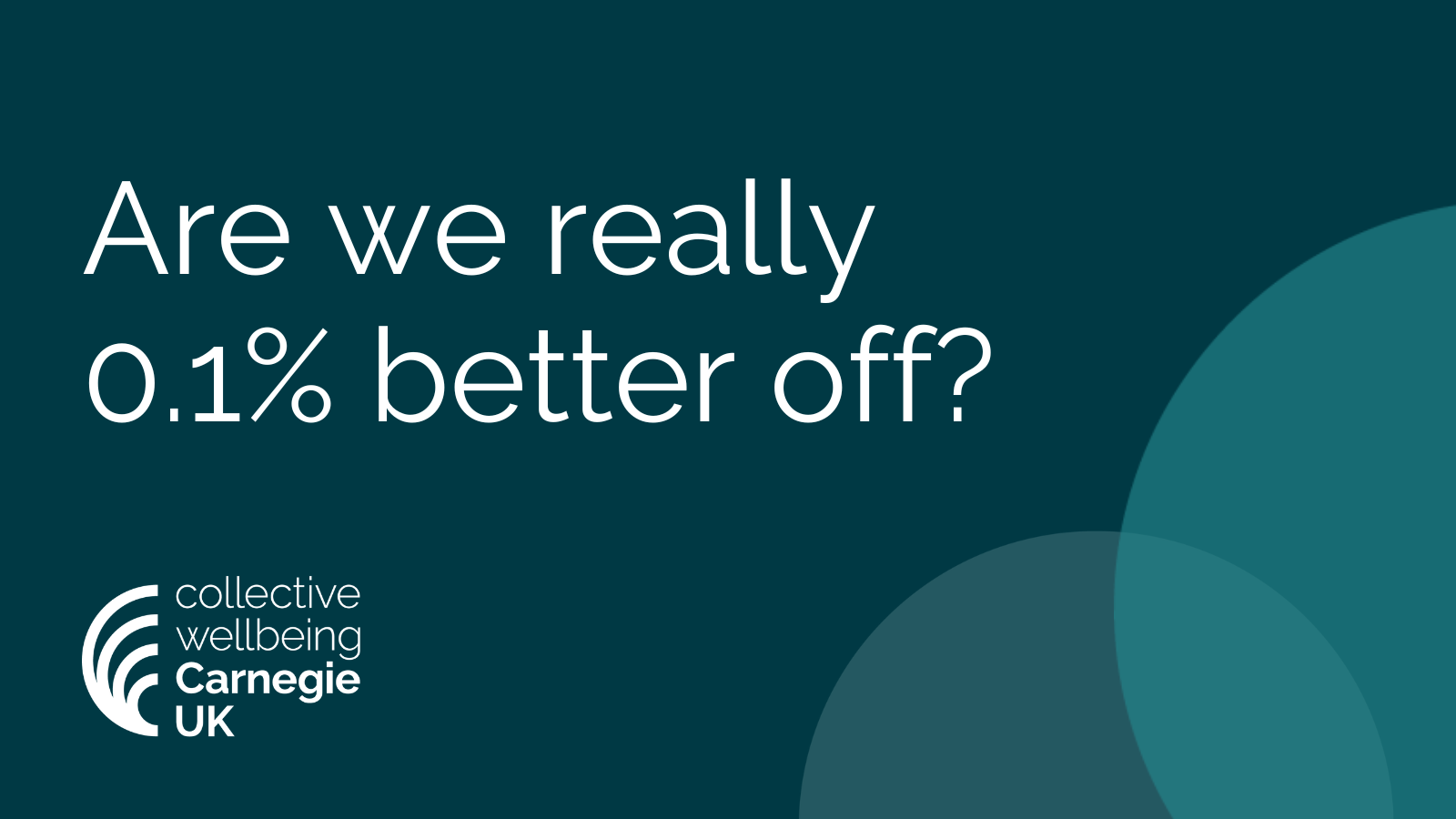Are we really 0.1% better off?

- by Jennifer Wallace and Jenny Peachey, Carnegie UK
- 6 June 2023
- 3 minute read
In May the Office for National Statistics (ONS) revealed that Gross Domestic Product (GDP) rose by 0.1% in the first quarter of 2023. There was the usual economic analysis from the same familiar faces. But what was lacking in the commentary was whether this really meant our lives were improving.
There is a stark contrast between the January-March GDP figures and our own research on the cost of living over the same period.
In our study it was revealed that a third of UK adults had cut down on healthy eating and socialising with friends due to rising costs. Our survey work revealed people finding it difficult to perform in educational settings and work because of the cost-of-living emergency.
People talked of using foodbanks so they can afford to travel to hospital, as well as being fearful and anxious about the future. One participant told us bluntly that they “can barely afford to exist”.
This clearly shows us that GDP isn’t telling us the whole story. As the woman in Newcastle, who heckled a leading economist in 2016, said ‘that’s your bloody GDP! Not ours!’.
But what would a better measure for whether we are living well look like?
In 2019, Carnegie UK began experimenting with this concept, inspired by the Canadian Index of Wellbeing. Given that the building blocks of a good life are largely understood (health, education, safety, community, employment, environment, sufficient income and a voice in decisions that affect us and so on) we knew it must be possible to build a picture of how we are doing across the UK and represent this numerically.
Our pilot project, called GDWe (Gross Domestic Wellbeing), relied on the ONS dashboard of National Wellbeing. It was successful in gathering interest from the UK and across the globe.
But we found that we couldn’t rely on official statistics because – except for quarterly economic data – many of these figures are slow to be published.
To build an index that assesses what matters, it must measure what is happening now – not 18 months ago.
We have spent the past year reflecting on what it would take to do this properly. The question we set ourselves was could we build an index that’s:
- Timely – reporting close to the time that data was gathered
- Relevant – based on what matters and connects with people across the UK
- Robust – both in terms of the individual indicators and the index methodology
- Comprehensive – covering social, economic, environmental and democratic domains of wellbeing
With help and support from Ipsos, we are delighted to say we have been able to do just that, and that the survey is currently in the field. The new Life in the UK Index will be launched in early Autumn and include for the first-time breakdowns for Scotland, Wales and Northern Ireland and key demographic groups. Like our first attempt, the research will measure wellbeing but this time we’re looking to expand the scope and strengthen our analysis.
Why does this matter? We believe that reliable metrics that measure what it takes for us to live well – and to live well together – could help policymakers make better decisions. This, in turn, could mean better lives for people up and down the country.
Help us make the case for wellbeing policy
Keep in touch with Carnegie UK’s research and activities. Learn more about ways to get involved with our work.
"*" indicates required fields